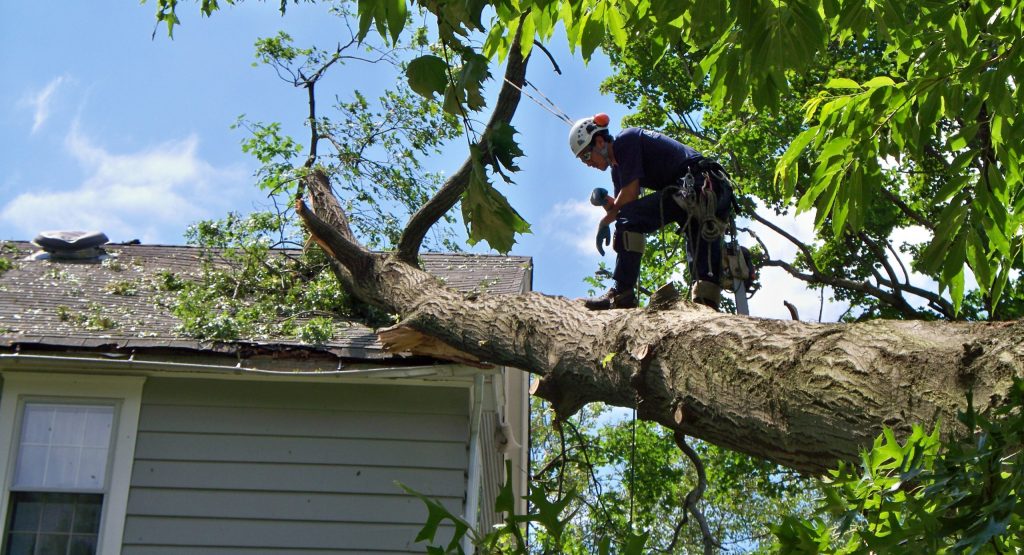
Because they provide us with shade, oxygen, and beauty, plants improve our lives. On the other hand, a falling tree on your home or property can be rather stressful.
First, it’s important to understand the different kinds of damage that falling branches can create. A tree falling is seen as an act of God. That’s when it happens as a result of uncontrollable natural occurrences like storms or strong winds. In most cases, you are not liable for the harm.
But what if the plant collapses because someone was careless? Like being ill, decomposing, or dead. Given that the harm could have been avoided with appropriate maintenance, the plant’s owner may be held accountable.
What must you do after that? You have to inquire from certified arborists in your area.
Trufast Tree Service
4386 N Farm Rd 159 Springfield, MO 65803
https://www.trufasttreeservice.com/
(417) 719-9072
Filing a Report of Tree Damage
- When the harms are evaluated, it’s essential to get in touch with your insurer. Keep in mind that tree damage is not always covered by insurance.
- Examine the coverage carefully and clarify any questions you have with your agent before accepting any policy. You might be able to file a claim if this damage is covered under your policy.
- An insurance adjuster usually visits your property or looks through submitted images. This is to determine the extent of the damage before beginning the claim process.
- Invoices for services you obtain, including timber removal and repairs, could also be requested by them. They will make a payment for the losses and costs incurred based on their evaluation.
- When an adjuster can’t get there right away, such as after a big storm, you might need to take precautions to stop more loss. Insurers pay for reasonable preventive charges.
- To prevent disagreements over the cover reimbursement. Thoroughly document the losses, take numerous pictures, and get an estimate from us right once. Check out https://sgfcitizen.org/government/crime/photos-wind-tears-down-trees-across-springfield/, for instance.
Assist in Insurance Companies’ Legal Obligations
Homeowners insurers are required by law to pay for damages caused by a plant crashing on your home. Nevertheless, each policy’s coverage limitations apply. In most cases, damage from fallen timbers brought on by wind, storms, or ice buildup is covered by home insurance. We call this peril coverage.
Coverage may also pay for the expense of clearing the fallen timber and debris in addition to repairs for structural damage. This frequently isn’t enough to pay the whole cost of the debris cleaning for big pines with extensive damage.
If you are unable to remain in your house while repairs are being done. Some policies will cover temporary living fees or damaged personal belongings.
Claim Payouts
It’s simple to make a payment: just send your insurer the invoice. After that, the agreed-upon sum will be paid to the service provider immediately. As long as the removal or restoration is covered by your policy.
However, remember that your invoice belongs to you, the client. Adjusters will collaborate directly with the contractor. You are responsible for the remaining amount if they choose not to pay the payment request or just a section of it.
Steer Clear of Predatory Tree Services
Watch out for predatory contractors who take advantage of emergencies to charge outrageous prices. These immoral actions may cause annoyance and financial hardship.
Look around for trustworthy service providers that charge reasonable prices, even in emergencies. Before a disaster, making arrangements for emergency care might assist relieve the pressure of working with unreliable firms.
Because of the risk involved in the task. The need for quick scheduling, worker hazard pay, specialized equipment, and emergency services is frequently expensive.
Emergencies usually call for an immediate reaction. Sometimes even outside of regular work hours, which adds to the expense. It is risky to remove or trim plants, and doing so requires trained laborers who might claim hazard pay.

What will you do if your insurer denies the claim?
- Examine your policy to make sure there isn’t a specific exclusion causing the denial.
- Seek Legal Advice: Speak with a knowledgeable lawyer to learn about your rights and, if required, contest the refusal.
- Make a Complaint: If you believe there are unethical activities taking place, you can make a complaint to the Insurance Department.
- Think About Mediation: As a less expensive and time-consuming option to lawsuits, mediation is available in some jurisdictions for insurance disputes.
- File a Lawsuit: You might have to sue your insurance provider if everything else fails. You can get guidance via this process from your lawyer.
- Record Everything: Maintain a file containing all correspondence and supporting materials about the application and rejection.
- Insurance can be daunting, but it’s essential for protection. If a branch falls on your property, don’t panic. The claim process is straightforward, and the payment to the service provider is generally pretty simple.
- Remember to read your policy carefully, document damages, and call us immediately. Staying informed and acting promptly can make a significant difference in restoring your property without breaking the bank.
